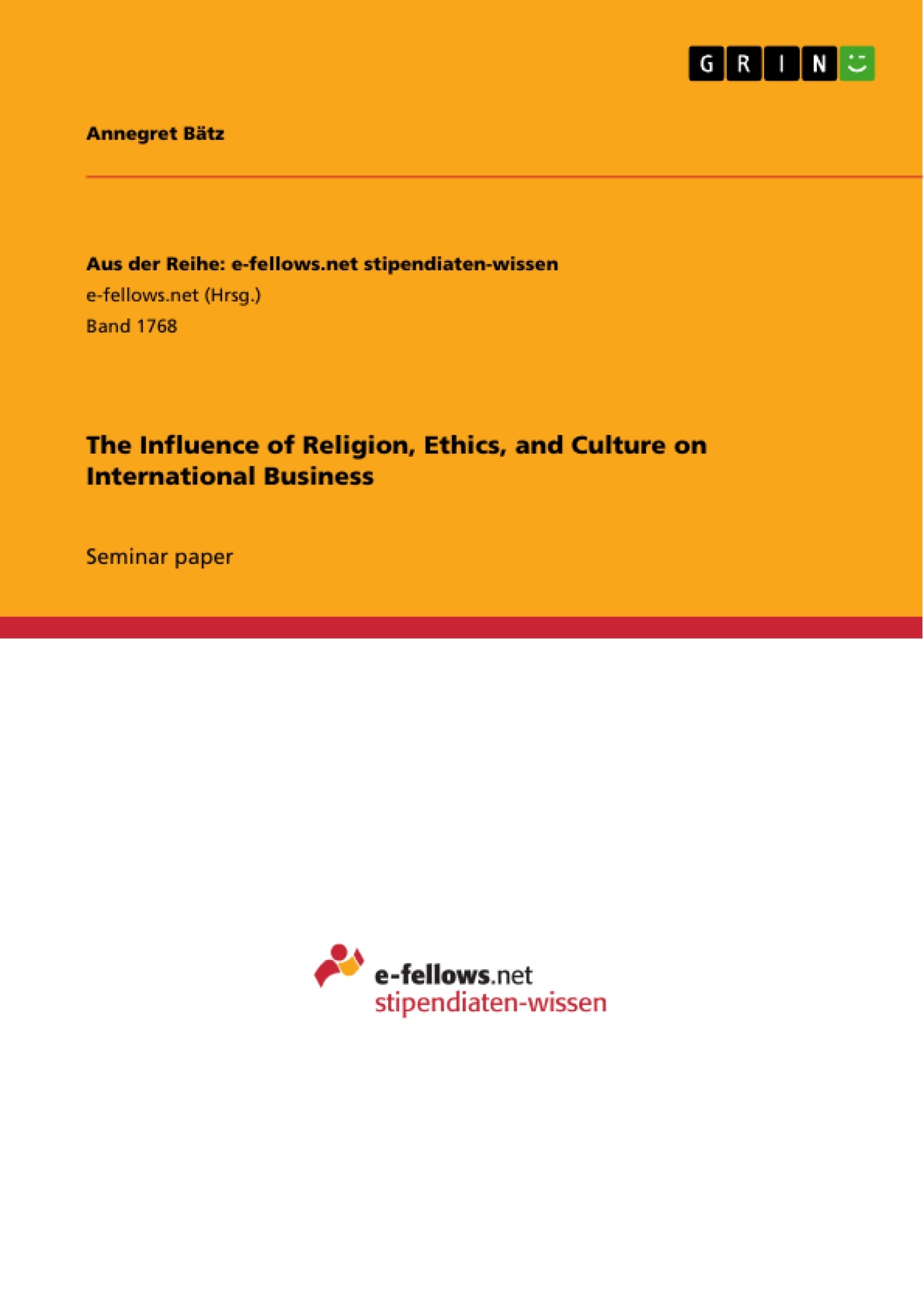Nowadays many firms produce and sell worldwide and employ workers from different nations. How do differences in a country’s religion or ethical system influence their global business operations? How does culture affect them? Is outsourcing production to developing countries ethically defensible? The aim of this paper is to address these questions.
Religion comprises shared beliefs, values, and rituals. Values are assumptions regarding what is good, right, or important. Ethical systems involve codes of conduct and values that externally form a group of people’s behaviour. Ethical systems are often based on religion and religion expresses ethical principles.
Measured by percentage of world population in 2010, Christianity (31.4%) is the biggest religion, followed by Islam (23.2%). By 2050, however, the Islamic population will be approximately equivalent to the number of Christians. The following section describes how those two religions and their ethics impact on international business.
Table of Contents
- The Influence of Religion, Ethics, and Culture on International Business
- The Influence of Religion and Ethical Systems
- Christianity
- Islam
- Confucianism
- The Influence of Culture
- Business Practices
- Cost of Doing Business
- Future Economic Development
- Outsourcing Production - Ethical or Unethical?
Objectives and Key Themes
This paper explores the influence of religion, ethics, and culture on international business practices. It examines how differences in religious and ethical systems, as well as cultural nuances, impact global business operations. The paper specifically focuses on the ethical considerations involved in outsourcing production to developing countries.
- The impact of religious and ethical systems on international business.
- The influence of culture on business practices, costs, and economic development.
- The ethical implications of outsourcing production to developing countries.
- The role of cultural differences in communication and time management in international business.
- The intersection of religion, ethics, and culture in shaping global business practices.
Chapter Summaries
The paper begins by examining the influence of religion and ethical systems on international business. It explores the impact of Christianity, Islam, and Confucianism on business practices and values. The paper then delves into the influence of culture, focusing on the examples of Germany and Saudi Arabia. It explores how cultural differences affect business practices, the cost of doing business, and future economic development in these two countries.
Keywords
Key terms and concepts explored in this paper include religion, ethics, culture, international business, globalization, outsourcing, ethical considerations, developing countries, cost of doing business, economic development, cultural differences, communication styles, time management, Christianity, Islam, Confucianism, Germany, Saudi Arabia, and guanxi networks.
- Quote paper
- Annegret Bätz (Author), 2015, The Influence of Religion, Ethics, and Culture on International Business, Munich, GRIN Verlag, https://www.grin.com/document/319415



